10 January 2022, “It is important to acknowledge how far the site has come – from the the old landfill site to what is now Tramore Valley Park and ultimately an investment by Cork City Council with financial partners of over e.40m at this stage. Phase two such as a pedestrian bridge crossing from Grange, is another important addition that is scheduled to come to fruition this year, and this will connect to communities in the heart of Grange and all the way back into Donnybrook”, Cllr McCarthy: Half Moon Lane access to Tramore Valley Park of huge value, Cllr McCarthy: Half Moon Lane access to Tramore Valley Park of huge value (echolive.ie)
Press, Cllr McCarthy, Call for dereliction ‘red tape’ to be addressed ahead of introduction of new grant, 9 January 2022
9 January 2022, “Mr McCarthy said anything that helps tackle the issue of dereliction is welcome and a step in the right direction, but the ‘red tape’ issue of tackling dereliction needed to be addressed. “Dereliction is a deep rooted problem, and it will take a lot of effort [to] pull up those roots and I would plead with the Minister to work with Cork City Council [on the issue]”, Call for dereliction ‘red tape’ to be addressed ahead of introduction of new grant, Call for dereliction ‘red tape’ to be addressed ahead of introduction of new grant
Cllr McCarthy: Huge Added Value for Half Moon Lane Access to Tramore Valley Park, 8 January 2022
Press Release:
Independent Cllr Kieran McCarthy has welcomed the recent opening of the Half-Moon Lane gate to Tramore Valley Park and has noted it as another very important addition to the story of the Park.
Cllr McCarthy noted: “The public consultation of 2021 was important to do and to formulate appropriate solutions to the expressed concerns. It was a long journey to get through the consultation, but it was important to spend the time in gauging and responding to different local perspectives. I think there is big added value to the new pedestrian and cycling access point, but timely at present to remind users that there is no car-parking at the location. The new entrance point ensures that the park is physically connected to the heart of the southern suburbs especially to communities on South Douglas Road, Cross Douglas Road areas and well into the areas of Douglas Road and Ballinlough. Indeed, when one counts the public parks in the south east side of the city, there are now at least 15 key neighbourhood parks and walks”.
“It is important to acknowledge how far the site has come – from the the old landfill site to what is now Tramore Valley Park and ultimately an investment by Cork City Council with financial partners of over e.40m at this stage. Phase two such as a pedestrian bridge crossing from Grange, is another important addition that is scheduled to come to fruition this year, and this will connect to communities in the heart of Grange and all the way back into Donnybrook”.
“The feedback I get from locals is that during the last two years of Covid Tramore Valley Park has been a second home to many people and really helped manage people’s mental health. Great credit is due to the park wardens onsite who are always friendly, as are the recycling staff. I continue to advocate that Tramore Valley Park has etched itself a jewel in the growing necklace of parks in the city, which are highly significant to the mental and physical health of citizens, concluded Cllr McCarthy”.
Kieran’s Press, The Barrack Street Six – Dr Kieran McCarthy, 6-7 January 2022
LISTEN: “Skeletal remains were found under a former pub in Cork city. Dr Kieran McCarthy, historian and local councillor, spoke to Baz about the discovery and gave some context as to where the skeletons may have come from. Kieran has plenty of amazing resources on Cork on his website corkheritage.ie” The Barrack St Six – Dr Kieran McCarthy | The Ryan Tubridy Show – RTÉ Radio 1 (rte.ie)
or READ 6 January 2022, “The skeletal remains of six people found at the site of a former pub in Cork city in early October have all the makings of a “medieval mystery”, according to local historian, Kieran McCarthy”, Six skeletal remains found at site of former Cork pub ‘a medieval mystery’, by Olivia Kelleher, Six skeletal remains found at site of former Cork pub ‘a medieval mystery’ (irishtimes.com)
Kieran’s Our City, Our Town, 6 January 2022
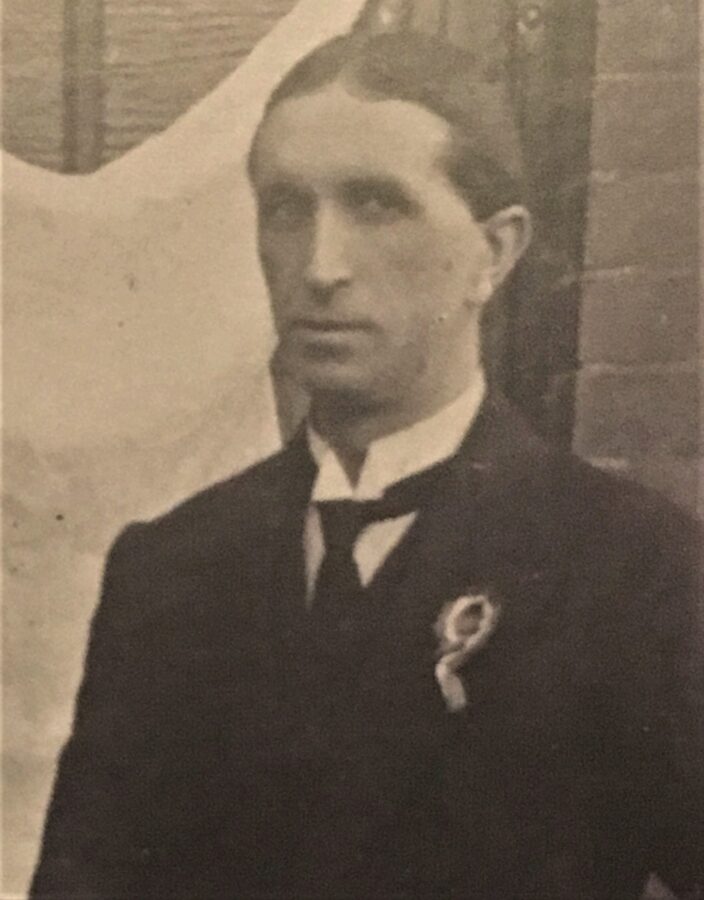
Kieran’s Our City, Our Town Article,
Cork Independent, 6 January 2022
Journeys to a Free State: The Dilemmas of the Treaty
Dáil Éireann resumed its Treaty debate on 3 January 1922 after a short New Year break. A large crowd had assembled at Dublin’s University Buildings, Earlsfort Terrace. A bitterly cold wind was experienced, accompanied at intervals by showers. Inside a range of speakers for and against the Treaty took the floor. On this day, two Cork TDs intervened – J J Walsh, an advocate for the Treaty, and Lord Mayor and TD Donal Óg O’Callaghan, who was an advocate against the Treaty. Both gave extensive and passionate speeches and the detail of these are digitised at www.oireachtas.ie.
On Deputy J J Walsh rising to take the floor, he spoke slowly and often spoke with his back to the reporters. He understood that they were there to express the voice of the people, and as he noted that they were there to represent the “consent of the country” – that they were there to speak about the majority will of the people.
Walsh noted thought he had made it his business to visit his constituents in the interval since they last met. The City of Cork, he believed, which had played an important part in the events of the previous four or five years, were in favour of the ratification of the treaty. He highlighted: “I have not though counted heads, have not taken a vote of the people; I would honestly say I feel that nine-tenths of the people of Cork City were in favour of the ratification”. Walsh continued that he had met prominent people in his constituency who had assured him that “they themselves had not met one single human being in Cork city opposed to the treaty”.
Walsh gave the opinion that those opposed to the Treaty need not necessarily take the oath if they did not want to. He had met several people who said that the Dáil had spent too much time discussing oaths and observed that “the Irish people were thoroughly fed up with this jujitsu exposition of oath ranting of that nature”.
Walsh felt that the public bodies of Ireland wished and desired the common good of the nation. He gave the example of Cork Corporation at the municipal elections of 1920. The public only voted 50% for the Republican candidates – 29 out of 56 candidates. In his estimation, in January 1922 if there was a vote the people of Cork would vote for many more Republican candidates.
Proceeding, JJ Walsh, said that war knew no principle, as those who lived through the previous six years knew. He denoted that the Irish people would not consent to the “resumption of war by anyone standing on the bedrock of our Republic”.
He heard it remarked that the country would be drawn closer to England if the treaty was ratified. He remarked the opposite would happen; “If you got any vision, I see that Ireland will be drawn away from England by virtue of the fact that it would be drawn closer to the universe. Instead of being sheltered off by England, Ireland, by the opening up of its trade routes and inter communication, would come closer in touch with the world”.
The Lord Mayor of Cork, Donal Óg O’Callaghan, also took the floor. He began speaking in Irish and then moved into English. He said that he was not going to appeal to any member of the Dáil to seek to influence the votes of any member of the Dáil. He was concerned only with his own views and vote. He resented what he described as “this series of lectures and appeals to which the hosts have been treated to by both sides”. He deplored the keen differences of opinion and disruption in the assembly and was distraught even more to the spirit in which it had been pursued. He took the view that every member of the Dáil was actuated by desire to do the best in the interest of Ireland, and in the pursuit of the idea of absolute Irish independence.
The Lord Mayor declared though he would be voting against the treaty. “I could not in conscience do anything else in regard to the result of that with regard to the people I represent”. He noted he had the honour for some time to represent the people of Cork in more than one capacity. He represented them as Lord Mayor, chairman of the County Council, and as one of the representatives in the Dáil. He felt that the people did not elect him to any of these positions because of any ability, real or supposed, or because of any statesmanship of his, or because of any political ability. He continued, “they elected me simply and solely because I believe in absolute freedom for Ireland, and because my views on the question are well known. If the people of Cork have since then changed their minds I did not”.
The Lord Mayor – in complete juxtaposition to J J Walsh – maintained the people of Ireland had not changed their minds, but if they have decided – a halt could be made on the treaty path they were now on and a move made onto another path towards, as he observed “the full measure of Irish freedom, entailing as it might still further war and suffering”. He wanted that his constituents – the people of Cork a right to decide. Therefore, he suggested, and he regretted it had not been suggested earlier – that the people of the country have the deciding voice on the treaty. He had no desire to record a vote if the people who had sent them there desired it cast up otherwise, but as he stated; “if a vote were taken I certainly, as an individual, could not cast my vote in any but one way. Then the electors may repudiate my action and recall a replacement. I would be perfectly content to avoid their decision”. He wished to be fair to the members in favour of the treaty – his views were the same as they were when he was elected to the Dáil.
Concluding the Lord Mayor said he regretted the strained feeling, which was visible in the Dáil, and hoped that – “if a vote were to be, and his suggestion for a plebiscite not taken – that the strange bitterness and strange feeling that had so suddenly risen in the Dáil would disappear and that they would all be in friendship once again”.
Happy New Year to all readers of this column.
Missed one of the 51 columns last year, check out the indices at Kieran’s heritage website, www.corkheritage.ie
Captions:
1132a. J J Walsh, 1918 (source: Cork City and County Archives).
1132b. Lord Mayor of Cork Cllr Donal Óg O’Callaghan, 1920 (source: Cork City Council).
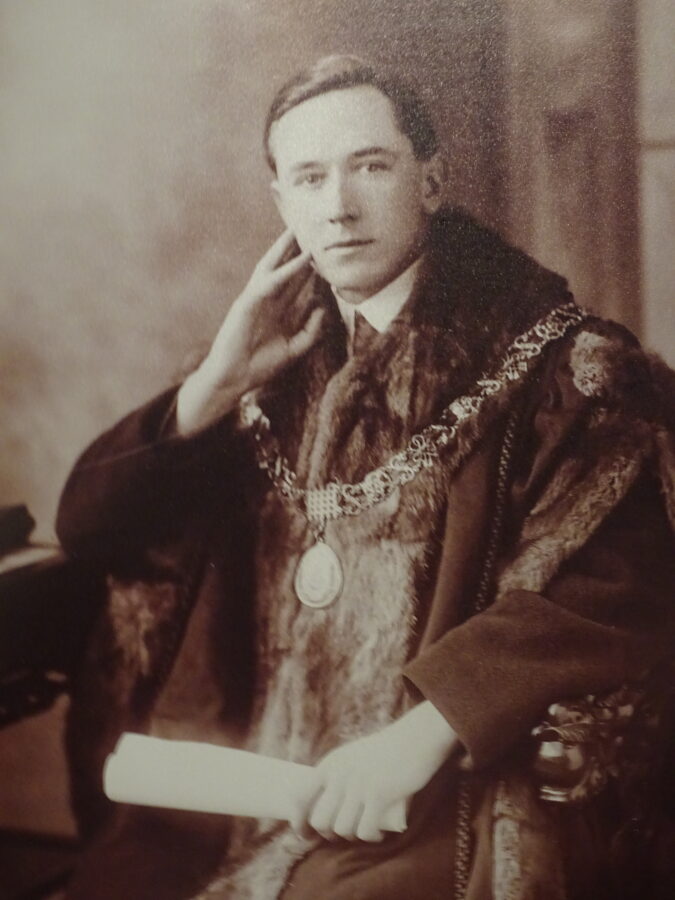
Happy New Year, 2022
Happy New Year to everyone, very best wishes for 2022!

Kieran’s Press: “Good design, good architecture can make or break a sense of place in a neighbourhood”, 29 December 2021
29 December 2021, “Good design, good architecture can make or break a sense of place in a neighbourhood. Queen’s Old Castle Shopping Centre was the site of one of the towers – called King’s Castle- which controlled the medieval Watergate and medieval dock- this tower is shown in the city’s coat of arms. In essence, this is where the trade of our port city began over 700 years ago. Adaptation of the site may also be required if the foundations of the tower are discovered or even other prominent archaeological features” Cllr McCarthy said, Mixed reaction to proposals for Queen’s Old Castle redevelopment, Mixed reaction to proposals for Queen’s Old Castle redevelopment (echolive.ie)
The Blessing of a Candle, 24 December 2021
by Cllr Kieran McCarthy
Sturdy on a table top and lit by youngest fair,
a candle is blessed with hope and love, and much festive cheer,
Set in a wooden centre piece galore,
it speaks in Christian mercy and a distant past of emotional lore,
With each commencing second, memories come and go,
like flickering lights on the nearest Christmas tree all lit in traditional glow,
With each passing minute, the flame bounces side to side in drafty household breeze,
its light conjuring feelings of peace and warmth amidst familiar blissful degrees,
With each lapsing hour, the residue of wax visibly melts away,
whilst the light blue centered heart is laced with a spiritual healing at play,
With each ending day, how lucky are those who love and laugh around its glow-filledness,
whilst outside, the cold beats against the nearest window in the bleak winter barreness,
Fear and nightmare drift away in the emulating light,
both threaten this season in almighty wintry flight,
Sturdy on a table top and lit by youngest fair,
a candle is blessed with hope and love, and much festive cheer.
Happy Christmas to Everyone!
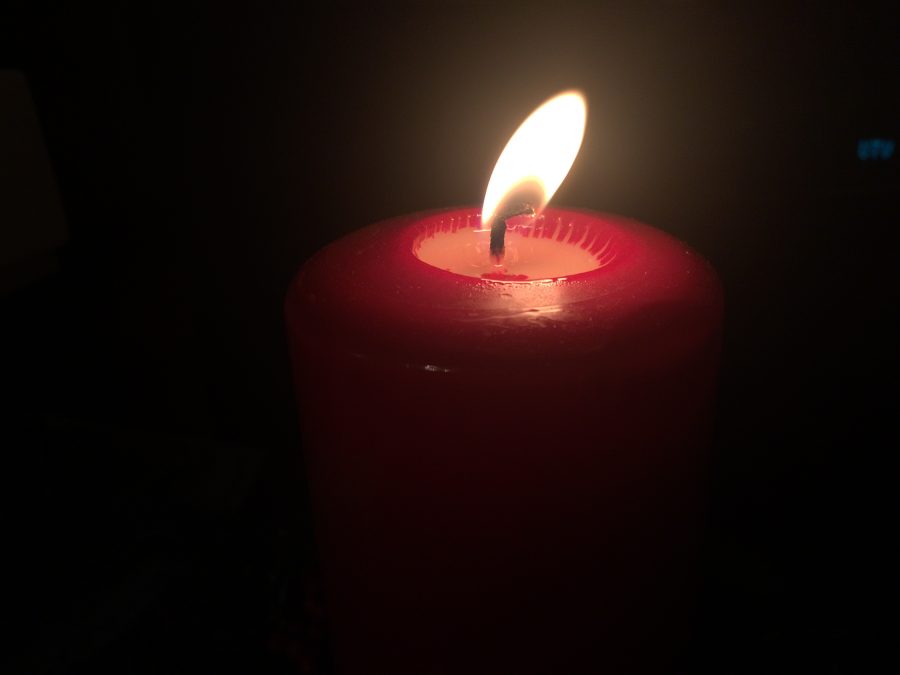
Kieran’s Our City, Our Town, 23 December 2021
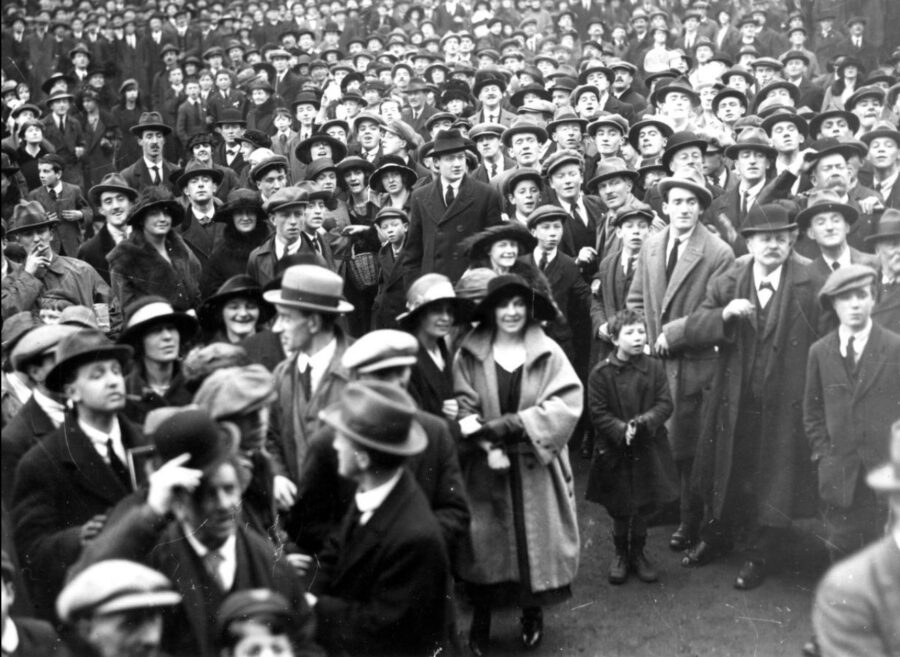
Kieran’s Our City, Our Town Article,
Cork Independent, 23 December 2021
Journeys to a Truce: The Treaty Debate Begins
On 9 December 1921, the publicity department of Dáil Éireann issued a statement by President Éamon de Valera. He noted that to prevent misunderstanding the public should realise that the treaty signed by the plenipotentiaries must be ratified by Dáil Éireann and the British parliament in order to take effect.
The usual process would be for the Cabinet of Dáil Éireann to introduce the treaty agreement and sanction it. Owing to the fact that in the latter stages of the negotiations the views of the delegation of plenipotentiaries differed from those of certain members of the cabinet, this course was not to be taken. The motion for ratification, De Valera, noted, would be introduced to the wider Dáil chamber by Arthur Griffith as chairman of the Irish delegation to London.
On Wednesday 14 December 1921 at University Buildings, Earlsfort Terrace at 11am, Dáil Éireann, opened its session to the public. The minutes of the meeting and those that followed are now digitised at www.oireachtas.ie. There was almost a full attendance by members. After discussing details leading to the appointment of the plenipotentiaries and the powers conferred on them De Valera asked that the session be private for the remainder of the day. He openly complained that the final text of the agreement reached in England was not submitted to Dublin before it was signed.
Michael Collins arose and said he was not in favour of a private session. He protested against what he called an unfair action on the part of the president in reading one document when he did not read another, which was equally vital viz- the credentials signed with the president himself to the plenipotentiaries when going to England. He then read in public a document, which declared that they were empowered, on behalf of the Irish Republic, to negotiate and conclude a treaty or treaties with representatives of Britain.
The private session was of a very protected nature and lasted until late into the evening. The doors and rooms of the meeting rooms were strongly protected by IRA volunteers. No one was allowed within the presence of the college buildings except accredited pressman. The private session continued the following two days on 15 and 16 December.
In the meantime, the special Irish session of the British parliament opened also on 14 December. The King’s speech expressed the hope that by the articles of agreement to be submitted to the house the “strife for centuries maybe ended that Ireland, as a free partner in the Commonwealth of Nations forming the British Empire”, and that Ireland would secure the fulfilment of its “national ideals”. In the extensive debate that followed Prime Minister Lloyd George spoke early in support of the treaty.
Dáil Éireann re-opened to public session the following Monday morning on 19 December. Arthur Griffith moved the ratification of the treaty, which was seconded by Commandant Seán McKeown. Griffith noted in an extensive speech that the task that was given to the plenipotentiaries was very difficult noting – “We faced that task. We knew whatever happened we would have our critics and we’ve made our minds up to do whatever was right and disregard whatever criticism might occur. We could have shirked the responsibility. We did not seek to go as the plenipotentiaries. Other men were asked; other men refused. We went. The responsibility is on our shoulders. We took the responsibility in London and we take the responsibility in Dublin. I signed the treaty not as an ideal thing but fully believing what I believe now was the treaty honourable to Ireland and safeguarding the interests of Ireland”.
In response De Valera gave his own extensive reaction noting he was against the treaty and that it would not end the centuries of conflict between the two nations of Great Britain and Ireland; “We went out to affect such a reconciliation and we’ve got back a thing, which will not reconcile Great Britain and Ireland and will not reconcile our own people. If there is to be reconciliation it is obvious that the parties in Ireland that typified national aspirations for centuries should be satisfied and the test of every agreement was whether the people were satisfied or not. Because of the conditions of war there are many people who might approve but if they had a small election now and got a vote of the people, the treaty would not reconcile the nations. It would mean a renewal of the contest after the act of union…They were threatened with immediate war and they were faced with a pistol at their head”.
De Valera expressed the view that the document that was signed in effect was under duress. He wanted the treaty and the constitution that when an Irishman met an Englishman he could, as a freeman, shake him by the hand. This document, in his opinion, made “British authority the master in Ireland”. Concluding De Valera noted, “do you think that because you signed documents like this you can change the current and tradition? You cannot; some of you are relying on that ‘cannot’ when signing this treaty but don’t put a barrier in the way of future generations…You are presuming to set bounds to the onward march of a nation “.
After several hours of debates, where members put forward their opinions on the signed Treaty, and after listening carefully, Michael Collins took the floor. Responding to the threat of Britain in the negotiations, Collins noted he has not been afraid to call the bluff of the British negotiators. He noted: “It has been suggested that the delegation had gone down before the first base of British bluff, but if they did there was a big bit of British bluff, which went on for the last two years and I did not breakdown before that bluff”.
Collins continued; “The treaty was not signed under personal intimidation if it had been offered under that threat the delegation would not have signed it…We know we have not vanquished the enemy, and have not driven them out of the country. The members do not understand the immense powers and liberties which the treaty gives them. If the treaty gives them security and freedom then it has satisfied their aspirations…it gives us freedom not the ultimate freedom, which all nations aspire to, but the freedom to achieve it”.
Collins maintained the disappearance of military strength from the country was proof of the achievement of national liberty. He highlighted: “Ireland was of course the weaker nation, and of course would be so for a long time, but as to certain guarantees we are guaranteed by countries of the constitutional status of Canada, Australia and South Africa”.
To be continued in the new year…
Happy Christmas to all readers of this column.
Missed one of the 50 other columns this year, check out the indices at Kieran’s heritage website, www.corkheritage.ie
Caption:
1131a. A crowd scene outside the National University buildings on Earlsfort Terrace, Dublin, awaiting ratification of the Treaty, Late December 1921 (source: National Library of Ireland, Dublin).
Cllr McCarthy: Empowering Regions Crucial – Debate with President Macron, December 2021
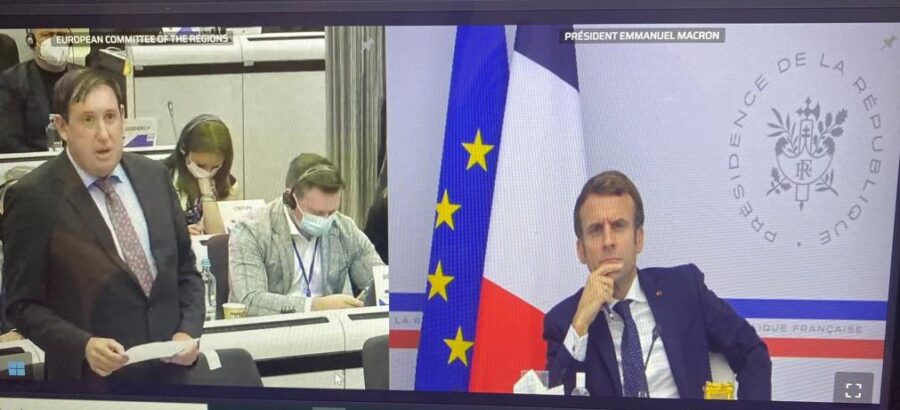
Independent Cllr Kieran McCarthy, this month, led calls to French President Emmanuel Macron for more consultation with citizens on the future of the European Union
In the December European Committee of the Regions plenary session, Cllr McCarthy, member, used his two minute online debate slot with the President to call for more investment into small cities and in rural, mountain and island regions. In particular, he asked for less centralisation of budgets and decision making in the EU.
Cllr McCarthy thanked the French President for his support in the Brexit negotiation with the EU, adding that this has been particularly helpful in maintaining peace and ensuring no hard border on the island of Ireland.
Cllr McCarthy noted: “I hope we will make progress on areas, which need investment and sometimes areas that feel forgotten about especially our rural mountainous and island regions we need to really focus on smart inclusive development with a specific focus on those regions and the best way to do this is from the bottom up. From Cork to Corsica our citizens deserve to be heard. Ultimately if you empower the regions, the EU will be a success”.
In recent months, Cllr McCarthy has strongly lobbied at EU level that local and regional authorities such as Cork City Council, who are on the forefront of the fight against the Coronavirus pandemic must be supported by EU Funds. He also raised the plight of SMEs in smaller European cities such as Cork and that any emergency EU funding released needs to get to the citizen on the actual ground and not be held up at central government level.
The European Committee of the Regions is a 329 person formal EU assembly of councillors, Mayor and Regional Presidents from over 270 regions in the EU.
LISTEN to Kieran’s comments here: